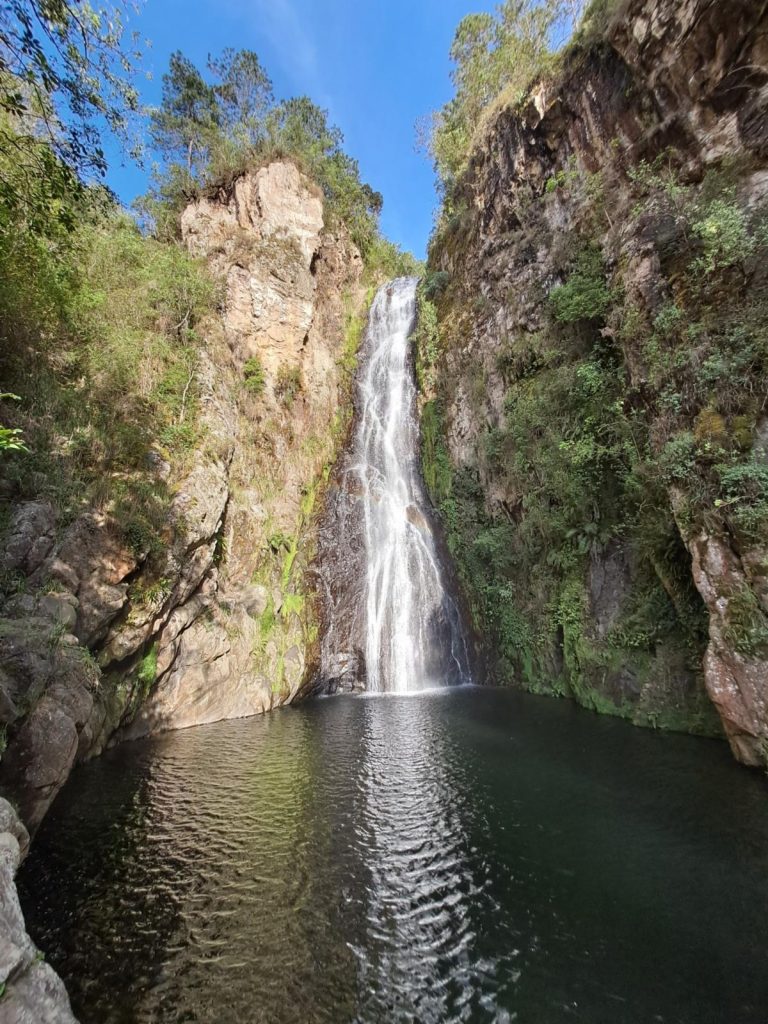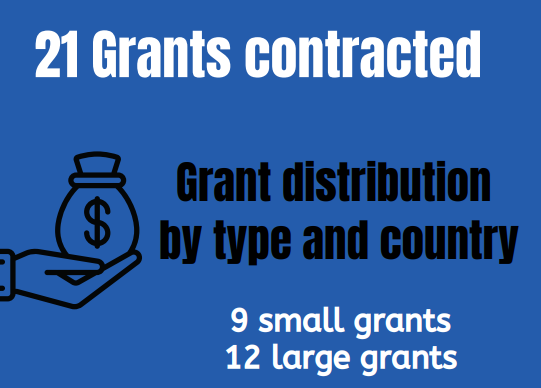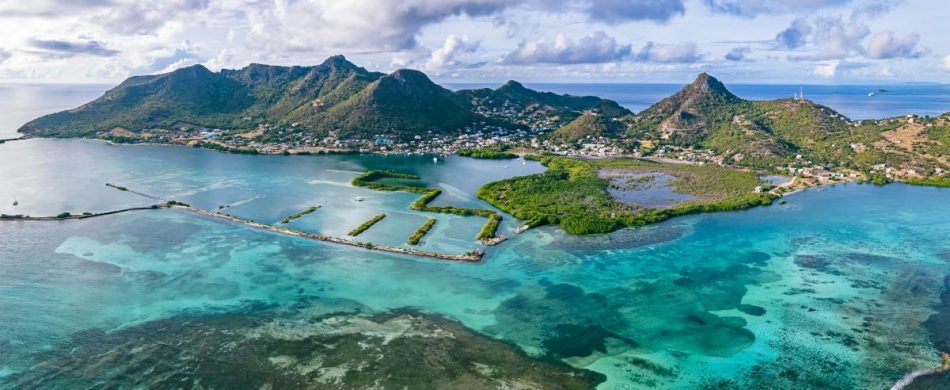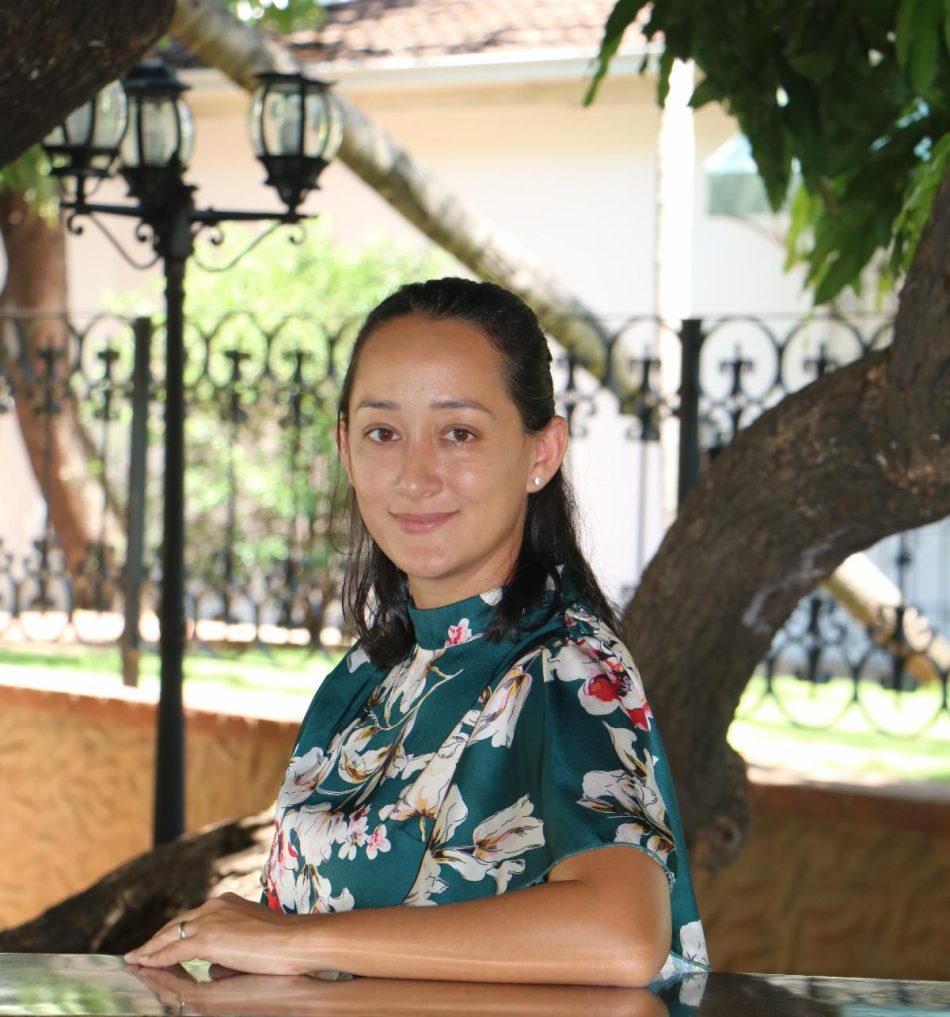Capacité + newsletter December
From CEPF Caribbean Islands Regional Implementation Team caribbeanrit@canari.org
December 2023 | Issue #4

Salto de Aguas Blancas. Valle Nuevo. Dominican Republic.© Liliana Betancourt
| Welcome back to Capacité+!Your go-to source for the latest updates on CEPF conservation initiatives in the Caribbean Islands. |
| In this fourth issue of Capacité+, we have a diverse range of content that showcases the remarkable progress being made by CEPF grantees in preserving the unique biodiversity and ecosystems of the Caribbean region. Our cover feature is a visual story highlighting the CEPF’s contributions to the conservation of the Caribbean’s most endangered species. We are also thrilled to report on a significant milestone in conservation efforts in the region – the declaration of Redonda (Antigua and Barbuda) as a protected area. In addition to these highlights, don’t miss our infographic that provides a comprehensive overview of the current status of CEPF Caribbean Islands portfolio and the progress we have made to date. We thank you for your support in 2023 and wish you all the best for 2024.We hope that you enjoy reading Capacité+! |
Species conservation at work in the Caribbean Islands Biodiversity Hotspot

Saint Lucia Whiptail.© Bjørn Christian Tørrissen
Read more

Read more
Read more
Update on the Caribbean Islands Phase II portfolio status
Check out our infographic that provides a snapshot of the current status of CEPF grant-making in the Caribbean Islands Biodiversity Hotspot.

Portfolio Status Infographic. © Caribbean RIT
Approved grants
To date, CEPF has issued twelve large and nine small grants totalling over US$3.4 million under its second investment in the Caribbean region.
Explore our interactive map of current CEPF-funded projects in the Caribbean.
For more details on the grants that have been issued, click here: English / Spanish

Union Island. Saint Vincent and the Grenadines. © Jacob Bock/FFI
Meet Simone Lee, Country Coordinator for the English-speaking Caribbean

| iSmone is an environmental professional with expertise in coastal and marine environments and social community-based projects in the Caribbean.She has worked on a variety of projects in the environmental field for more than 12 years, including in the areas of ecological and social scientific research, nature-based solutions and ecosystem restoration, community development, capacity-building, community-based research, marine protected area management and multi-stakeholder approached to conservation. She has worked in academia, the private sector and non-governmental organisations. |
| As CEPF Country Coordinator for the English-speaking Caribbean, Simone provides guidance to prospective applicants and supports grantees implementing CEPF-funded projects in the region. Her support includes helping applicants design projects that suit their needs while advancing the objectives of the CEPF strategy for the region, and once grants are contracted, she helps ensure the smooth implementation of projects. |
| About the CEPF The Critical Ecosystem Partnership Fund (CEPF) is a joint initiative of l’Agence Française de Développement, Conservation International, the European Union, the Global Environment Facility, the Government of Japan and the World Bank. |
| About CANARI The Caribbean Natural Resources Institute (CANARI) is a regional technical institute which has been working in the islands of the Caribbean for over 30 years. Our mission is to promote and facilitate stakeholder participation in the stewardship of natural resources in the Caribbean. |
For enquiries, contact us at caribbeanrit@canari.org.
About the CEPF
The Critical Ecosystem Partnership Fund (CEPF) is a joint initiative of l’Agence Française de Développement, Conservation International, the European Union, the Global Environment Facility, the Government of Japan and the World Bank.
About CANARI
The Caribbean Natural Resources Institute (CANARI) is a regional technical institute which has been working in the islands of the Caribbean for over 30 years. Our mission is to promote and facilitate stakeholder participation in the stewardship of natural resources in the Caribbean.





